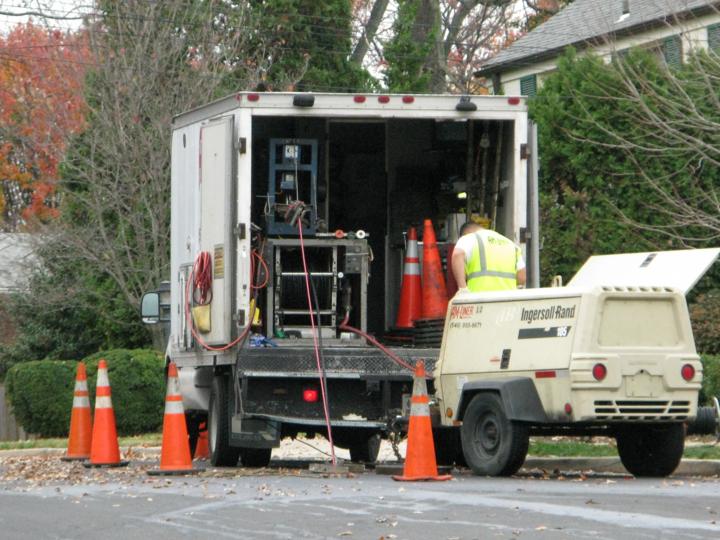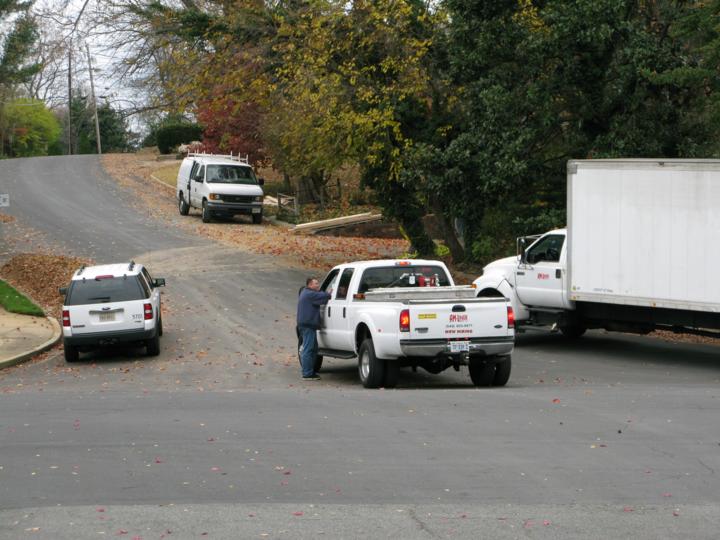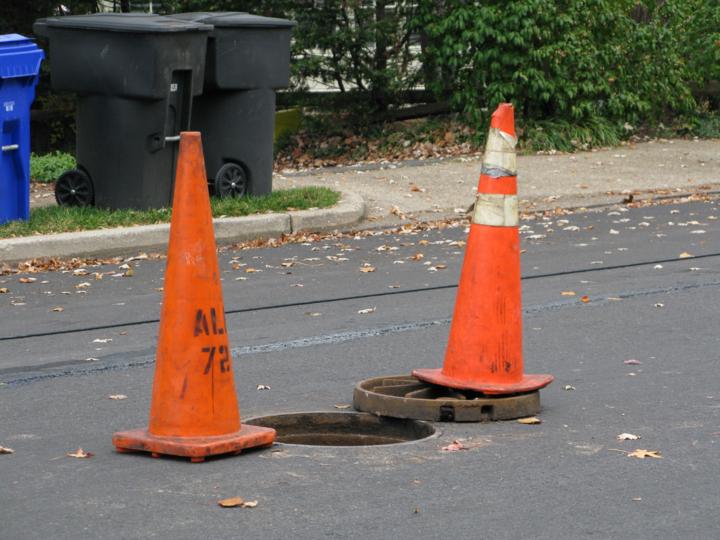A method of repairing water pipes, utilized by Arlington County, could be exposing residents and workers to health risks, according to new research.
A report out of Purdue University in Indiana found that the procedure, called cured-in-place pipe repair (CIPP), can emit harmful chemicals into the air, which sometimes are visible as plumes of smoke. Those nearby could then be exposed.
The research found evidence of hazardous air pollutants — chemicals that disrupt the body’s endocrine system and can cause tumors, birth defects and other developmental disorders.
Arlington uses CIPP, also known as pipe relining, to fix sanitary sewer pipes. It involves inserting a fabric tube filled with resin into a damaged pipe and curing it in place with hot water, pressurized steam, or sometimes with ultraviolet light. The result is a new plastic pipe manufactured inside the damaged one that is just as strong.
There have been several reported instances of the odors produced by the relining work prompting calls to the Arlington County Fire Department. Last year ACFD’s hazmat team responded to a Chinese restaurant in Falls Church after reports of an “unusual odor in the bathroom,” which was later determined to have been caused by relining work. In 2010, “numerous” residents of a North Arlington neighborhood called to report “a pervasive chemical odor,” also during relining work.
Andrew Whelton, an assistant professor in Purdue University’s Lyles School of Civil Engineering and the Environmental and Ecological Engineering program, led a team of researchers who conducted a study at seven steam-cured CIPP installations in Indiana and California.
“CIPP is the most popular water-pipe rehabilitation technology in the United States,” Whelton said in a statement. “Short- and long-term health impacts caused by chemical mixture exposures should be immediately investigated. Workers are a vulnerable population, and understanding exposures and health impacts to the general public is also needed.”
A spokeswoman for the county’s Department of Environmental Services said in an email that staff stays up to date on new research about its repair methods.
“The County is committed to ensuring the safety of its residents, workers and contractors,” spokeswoman Jessica Baxter wrote in an email. “CIPP (Cured-in-place pipe) is a national industry practice that is performed throughout the country and world to reline pipes. As new studies and findings come to light, the industry and the National Institute for Occupational Health and Safety will need to determine if additional protection mitigation steps are needed — and we, as well as our contractors, will monitor this for any needed changes.”
Researchers said workers must better protect themselves from any harmful chemicals that are emitted, and local health officials must conduct full investigations when they receive reports of unusual odors or illnesses near CIPP sites. Baxter said the county already provides plenty of information to residents near such work.
“When the County plans work to reline a section of sanitary sewer pipe, residents whose homes are directly connected to the pipe receive a notice prior to the work explaining the process and how to prevent fumes from entering their homes,” Baxter said. “The County also has a list of recommendations for homeowners on our website.”




